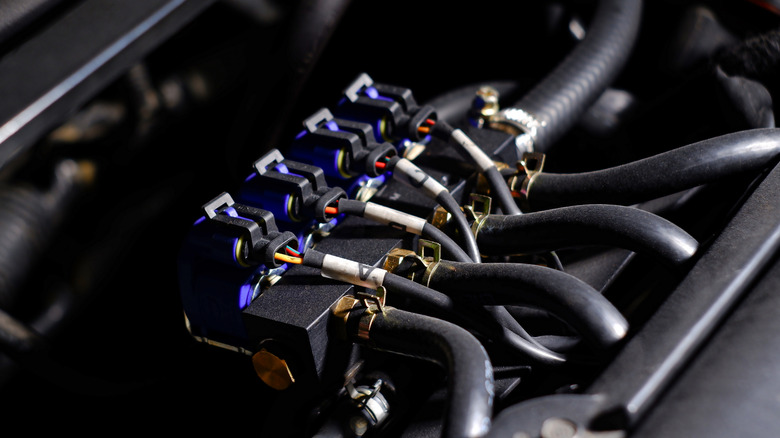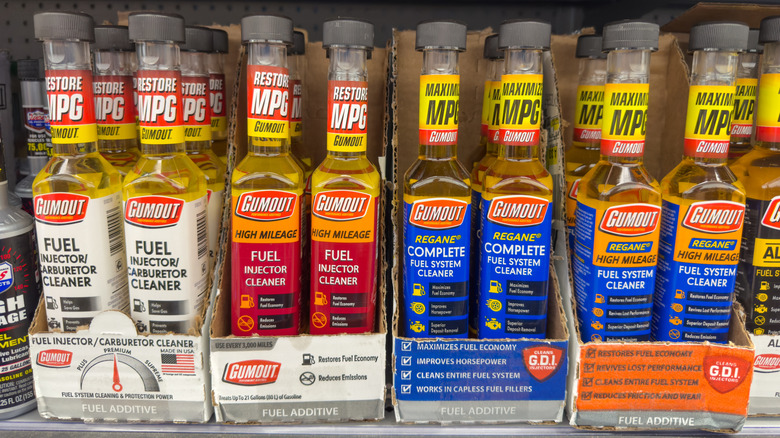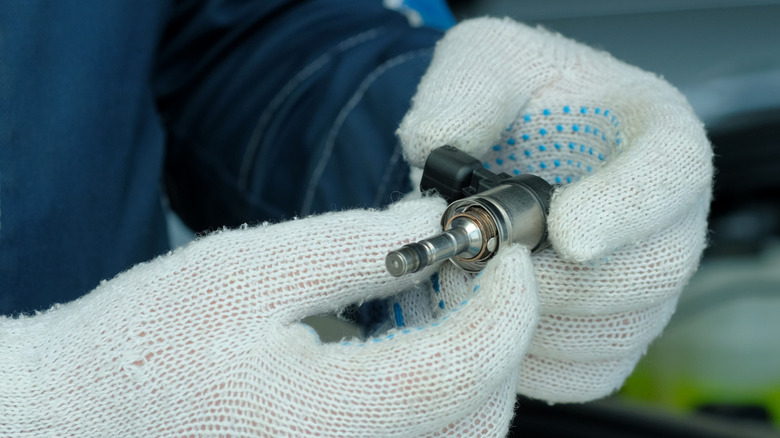What Are Signs Of A Clogged Fuel Injector (And Can Fuel Injector Cleaner Help?)
We may receive a commission on purchases made from links.
Bringing your car to a mechanic for simple automotive care routines has several benefits. It will prolong your car's life and help prevent long stays at the garage. Despite these perks, though, maintaining your vehicle can be challenging. After all, if you're short on cash and time, it can be too easy to ignore some aspects of car maintenance.
As a certified automotive mechanic, I can confidently say that oil changes, tire rotations, and brake jobs are among the basic services that get the most attention. They're familiar, predictable, and part of every owner's manual. If you want to keep your car in top shape, it's a good idea to pay attention to small details as well. Think of routine services, like inspecting brake lights and replacing wiper blades.
With that in mind, one of the most common maintenance mistakes drivers make is forgetting to clean the fuel injectors. The sole purpose of fuel injectors is to deliver the precise amount of fuel into the combustion chamber. Therefore, if you leave carbon deposits and dirt to build up on this component, they'll restrict airflow and fuel flow to the engine. As a result, you'll experience reduced fuel efficiency, poor acceleration, and, in extreme cases, long-term engine damage.
Though it's easy to see why most of us usually forget to clean fuel injectors — they don't have a clear check engine indicator like that of a low oil level — it's important that you know the telltale signs that your fuel injector is failing. This way, you'll catch the problem early and avoid the risks of reduced performance or engine damage.
Common signs of a clogged fuel injector
When it comes to a clogged fuel injector, its symptoms can mimic other issues, which is why they're easy to overlook at first. In fact, I've seen it plenty of times: Drivers coming in thinking their fuel pump is failing or the engine control module is malfunctioning, when in reality, it's the fuel injectors that are dirty.
That said, one of the most apparent signs of a dirty fuel injector is a rough idle. If the engine is stumbling or vibrating more than usual when sitting still, then that's a good indication that the injector is not delivering the right amount of fuel to the combustion chamber. Moreover, a clogged fuel injector may cause the engine to misfire, leading to a jerky ride or unusual noises.
It can also make crucial processes like the air-fuel mixture erratic, which, in turn, will lead to reduced engine performance. As such, drivers may experience hesitation or stumbling when they press the accelerator pedal, making acceleration uneven or sluggish. In severe cases, you may experience difficulty starting the engine.
Alongside reduced power, you might also notice a change in fuel efficiency. In fact, a clogged fuel injector is among the reasons your vehicle's MPG might be going down. After all, if the injector is partially blocked, that means that the engine is not receiving enough fuel, so it will overwork to perform efficiently. The results? Higher fuel consumption.
Can a fuel injector cleaner help? Here's what you should know
Once you've spotted the signs of a clogged fuel injector, your first solution will probably be to reach out for a fuel injector cleaner. They're easy to use, inexpensive, and promise to eradicate carbon deposits and boost car performance. But before you go ahead and add these additives to your fuel, you should note that they're not the same. In my experience, choosing from the best fuel injector cleaners on the market can make a real difference in results.
In fact, if the injector is only mildly clogged, a product like the Redline SI-1 Complete Fuel System Cleaner, which retails at Amazon for $16, will dissolve those carbon deposits and restore smoother fuel flow. However, it's worth noting that cleaners are not a cure-all product. While they're best for light deposits, they won't cut it when it comes to a completely clogged injector. In such cases, you'll likely need a professional cleaning (pressurized or ultrasonic) or even a full replacement.
This also applies to mechanical issues. If your car has problems like worn-out seals, a cracked injector body, or electrical failure — the injector not opening or closing properly — no bottle of additive will solve the issue. The best thing you'll want to do is let a mechanic inspect the system.


